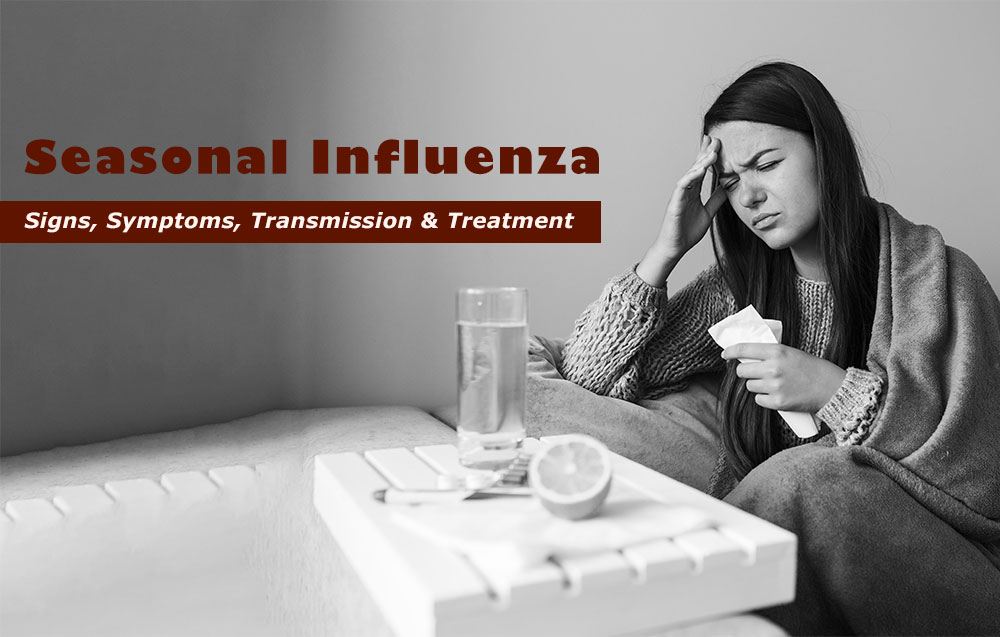
Seasonal Influenza: Signs, Symptoms, Transmission & Treatment
Seasonal flu or seasonal influenza is a respiratory disease which is caused by influenza viruses. There are three types of influenza viruses, type A, B, and C.
Influenza A and B viruses circulate and cause outbreaks and epidemics. Due to this very reason strains of Influenza Virus A and B are included in the seasonal influenza vaccines.
Influenza type C is less frequent and causes mild infections and causes lesser health implications.
Signs And Symptoms Of Seasonal Influenza
Sudden onset of fever, dry cough, headache, muscle, and joint pain severe exhaustion and fatigue, and a runny nose are a few symptoms that will help your doctor identify the influenza virus. The cough can be severe and may take about 2 weeks to recover fully. Most people recover from fever and cough within a week on their own, but influenza can also cause severe illness or disease and even can be a cause of death. The time from infection to illness which is known as the incubation period is almost 2 days.
Who Does Influenza Attack The First?
Influenza epidemics can seriously affect all people but the ones who are at a higher risk of complications are pregnant women and children aged 6 months to 4 years. People with already a respiratory problem such as Asthma, chronic heart or lung disease, and health care workers are more prone to the influenza virus.
Related Article: What Are The Signs, Symptoms And Treatment Of Swine Flu?
Transmission Of Seasonal Influenza
Seasonal Flu spreads easily from one person to another. When an infected person coughs or sneezes the drops of the saliva contain the influenza virus. When these droplets are dispersed in the air and someone inhales those droplets, the person catches the seasonal flu too. People should wear masks if they have seasonal flu or should avoid contact with other people directly and use a tissue to cover their mouth and nose. You should wash your hands regularly as anyone who shakes hands with you may catch the virus too if you have applied those hands even accidentally on your mouth or nose.
Prevention Of Seasonal Influenza
The most effective way to prevent the disease is vaccination. Safe and effective vaccines are available and have been proven to be successful in many individuals. In elderly people, the influenza vaccine can be less effective in preventing illness. But in elderly people, vaccines have proven to reduce the severity of the disease and complications and also death rates. Annual vaccination is necessary for pregnant women, children from 6 months to five years, elderly people who are more than 65 years of age, and individuals who catch flu every season. Health care workers have also been prescribed influenza vaccines because they are the people who are treating the patients with the virus.
You May Like: What Are The Causes Of Migraine? Know Symptoms And Treatment
Treatment Of Seasonal Influenza
Antiviral drugs may prove helpful but they are available only in some countries. Inhibitors of the influenza neuraminidase protein which are oseltamivir and zanamivir are helpful in reducing the symptoms of seasonal flu. M2 proton channel blockers which are amantadine and rimantadine are also a treatment but virus resistance has been reported to it.
Related Articles :









.jpg)